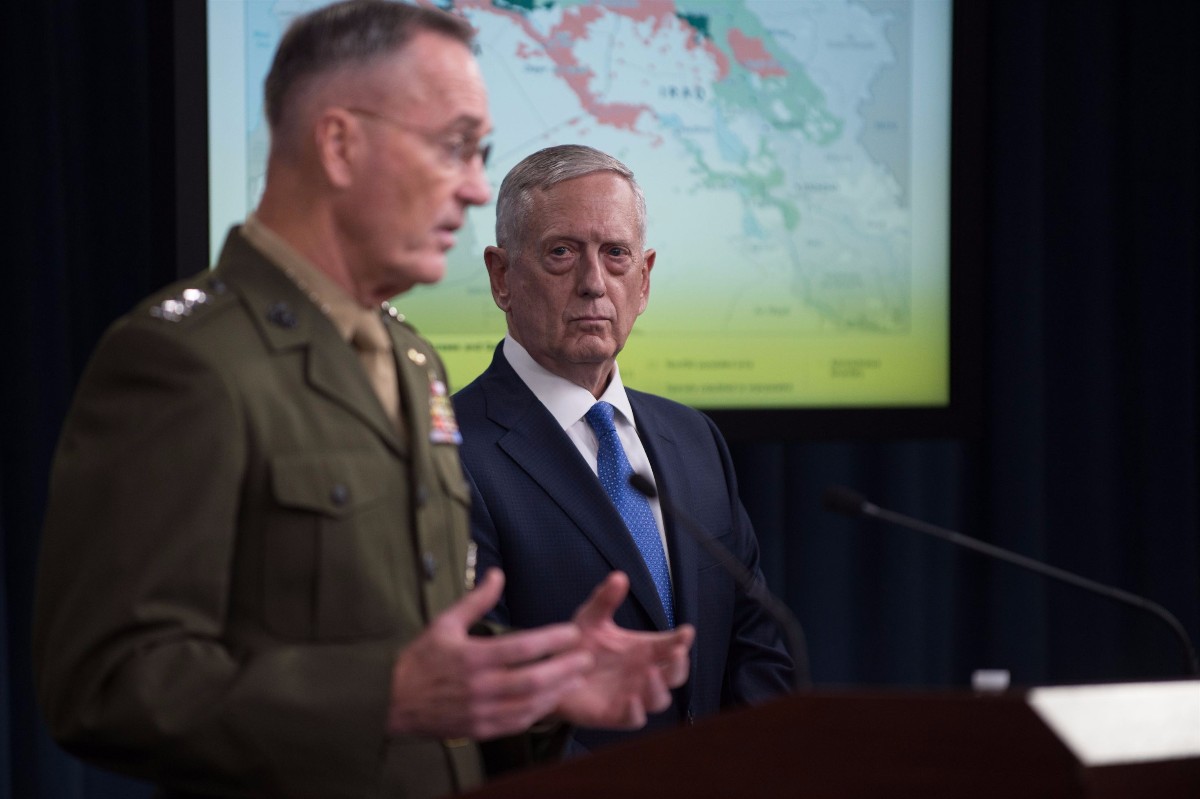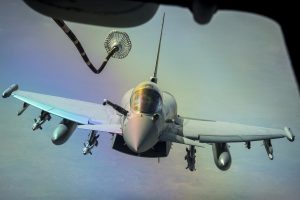 Photo by Army Sgt. Amber I. Smith, U.S. Department of Defense
Photo by Army Sgt. Amber I. Smith, U.S. Department of Defense
Increased American Military Involvement Against the Islamic State isn’t the Only Option
The Islamic State’s self-sufficiency is failing. It is increasingly being forced to rely on external material support and access to international financial networks. A concerted international effort specifically targeting those avenues of support would place immense internal pressure on the group without requiring an increase in the level of American military involvement. With robust support from the United States, such an effort could lead to the de-facto disintegration of the Islamic State.
Supporting an international commitment to limit the Islamic State’s access to external resources, in conjunction with the current level of military involvement, is the foundation of an effective strategy that does not require a greater American military commitment. The prevailing rhetoric in favor of an increased American military involvement is not supported by the facts on the ground. Rather than a terror network on the rise, ISIS is clearly weakening within Iraq and Syria.

Photo by Senior Tyler Woodward, U.S. Air Force
Focusing on degrading the group’s external outreach in vital areas to limit and eventually destroy their ability to finance military operations, conduct attacks, and recruit new foreign fighters is the best option. None of those objectives require increased American military involvement to achieve.
Opponents of this approach may argue that the lengthier time frame is not aggressive enough to deter future terrorist activity and that overwhelming American force would lead to a sudden defeat of the Islamic State. This critique is unfounded for two reasons. First, the majority of ISIS related attacks have been planned and executed by local cells receiving little to no operational input from ISIS-central. Second, the notion of “defeating” the Islamic State is strategically misguided and only displays a poor understanding of the threat posed by terrorism. Terrorism is a strategy, and there are limits to the impact that brute military force can have on the situation.
With the military balance already tipping against the Islamic State, an influx of increased American military power would not have a significant strategic impact. Certainly, ongoing coalition operations have had a tremendous effect on the capabilities of the Islamic State, decimating the group’s capacity to undertake successful military action, plan and coordinate major terror attacks, and have significantly hindered its financial operations. The marginal impact of increased American military power, however, is not significant enough to justify the costs associated with such a commitment. The deployment of overwhelming American ground forces may hasten the group’s decline, but it would not guarantee a substantially different end-state.
As coalition forces continue to close in on Islamic State strongholds, the potential utility of an increased American military force continues to diminish. Raqqa, the group’s de-facto capital, faces imminent military action and represents the Islamic State’s final serious claim to territorial legitimacy. As the group disintegrates under continued external pressure and isolation, a massive influx of American troops represents an increasingly misguided option that belies an unrealistic pursuit of a conventional victory over an adversary that cannot be defeated in the traditional sense.





